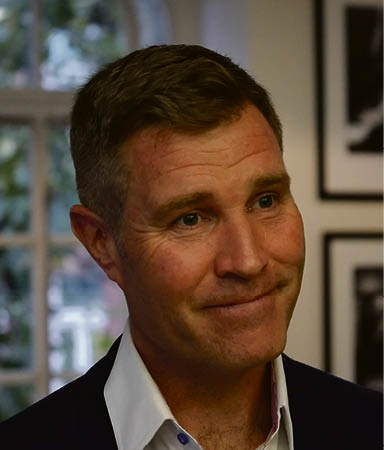
Jan Joubert , chief executive of digital transformation specialist, Rainmaker
Department chiefs are under increasing pressure to deliver significant cost savings, while also improving services and taking advantage of digital technology.
This is a tough ask when many are still hamstrung by large, long-term contracts with traditional IT firms that struggle to match the pace of innovation available elsewhere.
The acceleration of digital disruption is forcing the sector to turn away from the large consultancies and systems integrators. Smaller, more agile organisations are bringing a fresh approach on how to align technology with the needs of the department and its users.
Arguably, working more flexibly has never been more important as Whitehall faces continued uncertainty in dealing with the fallout of Brexit.
The challenge is apathy. Many department chiefs are wary of adopting new ways of working and are still falling into the trap of opting for large, complex projects with a more traditional approach to defining, sourcing and delivering technology.
But it doesn’t need to be like this, according to Jan Joubert, chief executive of digital transformation specialist Rainmaker.
“We look to deliver the digital transformation agenda in a way that still achieves cost-reduction targets and minimises risk to improving services,” explains Mr Joubert.
There is a growing acceptance that the fat in old, large supplier contracts offers an opportunity for a new approach which can free up savings and remove some of the major, common barriers to funding transformation.
“I’ve always believed the IT industry overcomplicates things”, says Mr Joubert, who co-founded Rainmaker in 2010 and has built it into a leader in business and digital transformation.
“Transformation requires the accelerated delivery of flexible solutions that focus on the needs of the business, its people and its customers. These solutions need to be well designed and adapt to constantly changing requirements, driven by advances in technology and new ways of working.”
There has been a lot of progress within government, driven mainly by the Government Digital Service (GDS), but it has been slow, difficult and, some would argue, nowhere near radical enough. “Now is not the time to lose faith in the direction GDS has set,” says Mr Joubert.
Having leaders that truly understand why technology improvements are needed and how they align with business performance is critical to success. According to Mr Joubert, they also need to encourage a culture that rewards experimentation and encourages staff to invest time in finding better ways of working.
This is not easy, concedes Mr Joubert, who explains: “Getting this right requires time, experience, courage and a mindset that there’s a different way of doing this. To take our approach does require resolve and rigour, but it’s worthwhile.”
One of Rainmaker’s clients is High Speed 2 (HS2), the government-backed rail company which will open a new route between London and Birmingham over the next decade.
Rainmaker has played a major role in setting the vision for HS2’s digital strategy and is now supporting its implementation.
Crucial to its thinking about technology has been a focus on the company’s vision that HS2 is not just a railway, but a catalyst for growth across Britain.
There has been a concerted effort to keep the technology team as small as possible so it can adapt to change, focused not on creating a solution that will last until 2026, but one that may need to change frequently as the needs of the business evolve.
It needs technology that can adapt as over time the focus of the business switches from planning, to digging holes, laying track, and eventually running trains and selling customers tickets.
The result is an organisation that has embraced technology. As Mr Joubert puts it: “It’s about transferring skills and changing culture so the approach can be embedded in the DNA of the organisation.”
For more information please visit rainmaker.solutions
